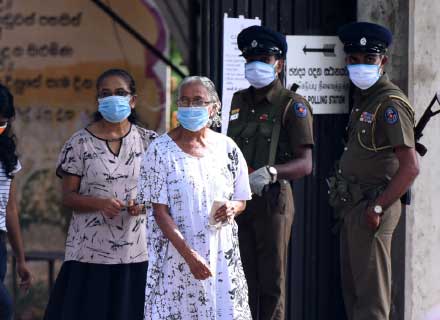In the wake of unprecedented inflation and scarcity of basic commodities including food and fuel, the Sri Lankan government has ordered soldiers to enforce rationing and maintain order as petrol pumps see customers thronging in serpentine queues. According to Al Jazeera, the decision was taken after three elderly citizens were reported to have died in shops waiting for their turn.
Currently, the island nation is tackling one of its worst economic crises since independence with a shortage of high-value foreign currency which is required to import essential commodities like food, medicine, and petroleum.
A financial emergency was declared as early as August 2021 by the government and has a trade deficit of $10 billion. This has led to currency depreciation and the government being forced to look for assistance from the International Monetary Fund.
The country has also sought a $2.5 billion loan from China and has also secured a credit facility of $1 billion from neighbouring India.
The situation has also sparked some tensions with incidents of violence being reported intermittently. There have been occasional protests against tourism operators over the shortage of kerosene, primarily used as a fuel in cooking stoves.
The deployment of the army is aimed at ensuring there is no hoarding, black marketeering, and better distribution of essential supplies. The situation is so dire that term tests for millions of students had to be cancelled due to a shortage of ink and paper.
The country’s economy suffered a setback with two years of the pandemic restricting the inflow of foreign tourists, a backbone of the economy. The tourism industry alone contributed 10% of the nation’s GDP and provided employment to 200,000 persons.
According to analysts, other than the devastating impact of the pandemic, high government spending and dilution of tax structures are the main cause of this debacle of the once-thriving economy. According to the World Bank, as many as 500,000 of the country’s residents have been pushed into poverty since the onset of the pandemic.

